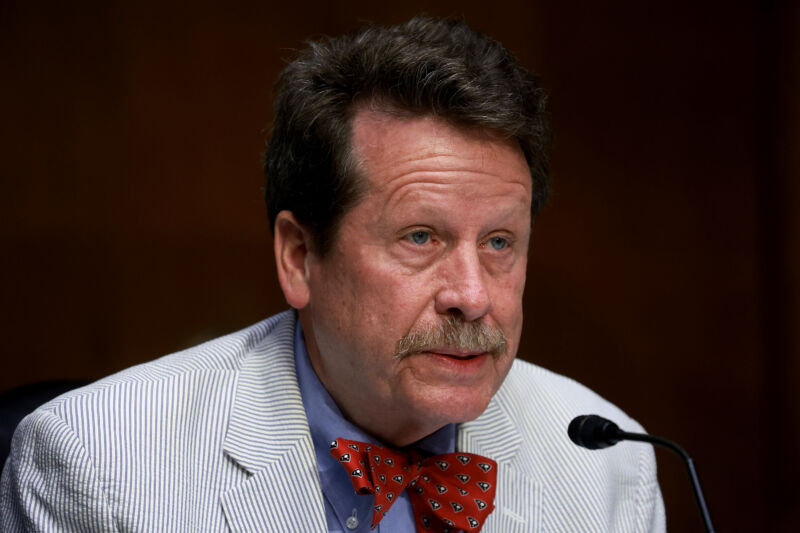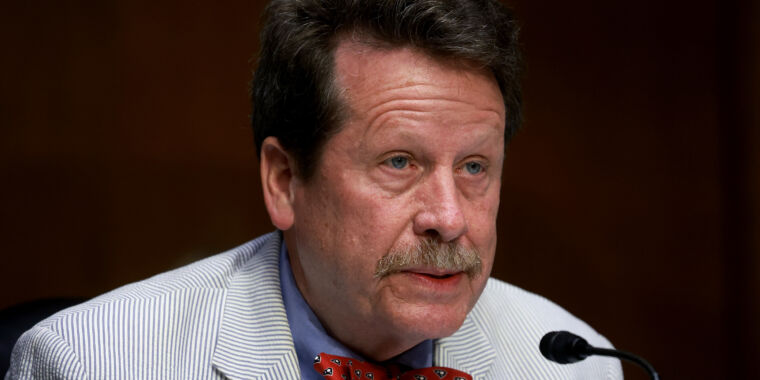
The Food and Drug Administration has commissioned an external review of its food and tobacco programs in the wake of high-profile debacles—including bungled oversight of e-cigarettes, most notably of Juul products, and a dire nationwide shortage of infant and specialty formulas that left many parents scrambling and some babies in the hospital.
“The agency has confronted a series of challenges that have tested our regulatory frameworks and stressed the agency’s operations, prompting me to take a closer look at how we do business,” FDA Commissioner Robert Califf said in a statement Tuesday.
Califf commissioned The Reagan-Udall Foundation, which will work with unnamed outside experts, to conduct evaluations of the agency’s Human Foods Program and the Center for Tobacco Products. The foundation is a private nonprofit tasked by Congress to support and advise the FDA. The foundation’s evaluation will scrutinize the two FDA programs’ “processes and procedures, resourcing, and organizational structure,” and the foundation will report initial findings to the agency within 60 days, Califf said.
The FDA has faced intense criticism on various fronts for various problems, which Califf largely inherited. Though he had briefly held the position of FDA Commissioner during the Obama era, Califf only rejoined the agency in the role in February 2022. In the five months since then, he has frequently defended the agency’s work but admitted that there is much room for improvement.
“We have the safest food in the world,” Califf said in a Congressional hearing Wednesday. “Every expert I’ve talked with—the CDC monitors this carefully—said that our food is as safe as it’s ever been. …That doesn’t mean it can’t be a lot better and that there aren’t major problems. So, you know, that’s why we’re doing this top-down review and plan to make significant changes.”
Formula shortage
In announcing the review, Califf noted that the agency’s food oversight “has been stressed by the increasing diversity and complexity of the nation’s food systems and supply chain.” He also acknowledged that “fundamental questions about the structure, function, funding, and leadership need to be addressed,” as do the agency’s “inspectional activities.”
In a previous Congressional hearing focused on the infant formula shortage, Califf had struggled to clearly explain the leadership structure of the food program or the chain of command moving up from regional personnel who inspect commercial plants.
Additionally, lawmakers have slammed the agency for being slow to respond to a whistleblower’s complaint filed last year about serious problems at one of the largest formula plants in the US—Abbott’s Sturgis, Michigan plant. When the FDA finally investigated the plant earlier this year, inspectors discovered deadly bacteria that had already been linked to infant illnesses and a death. Amid reports of a second linked infant death, the plant closed in February, which largely spurred the nationwide shortage. The closure subsequently sent federal officials scrambling to muster supplies, airlift millions of containers from abroad, and issue guidance to parents facing empty shelves.
Vaping struggles
Meanwhile, the agency has also struggled to regulate the mushrooming vaping industry, including synthetic nicotine and cannabis products. The FDA recently reported that it is trying to review around a million applications for non-tobacco nicotine products.
Earlier this month, the FDA made an embarrassing backpedal in its decision to force e-cigarette maker Juul off the US market. The agency initially denied the vaping giant’s request for marketing authorization in late June. But a federal court quickly blocked the denial, leaving Juul products on the market, at least temporarily. Then, the FDA suspended the denial, saying that “there are scientific issues unique to the Juul application that warrant additional review.”
The FDA has made progress in regulating tobacco products, Califf said, “but even greater challenges lie ahead as we determine how the agency will navigate complex policy issues and determine enforcement activities for an increasing number of novel products that could potentially have significant consequences for public health.”
Califf acknowledged that it may take time to implement the significant structural changes that may come out of the outside evaluation. “But,” he said, “I am committed to addressing them and communicating them to the public in a timely manner.”








